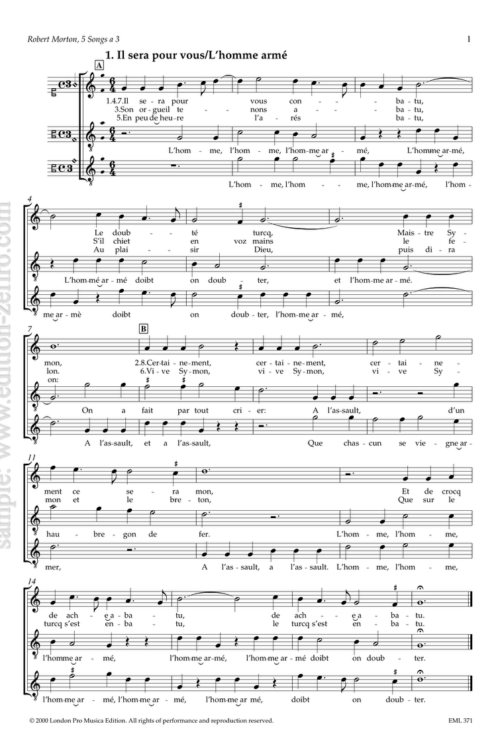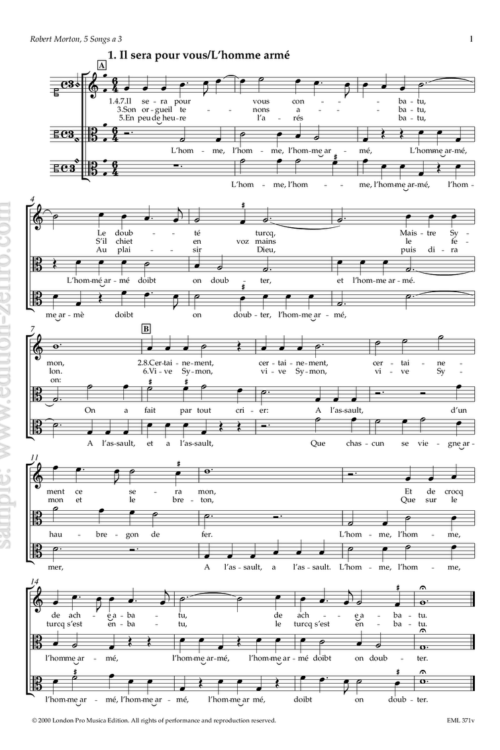Come On In
Robert Morton (also Mourton, Moriton; c. 1430 – after 13 March 1479) was an English composer of the early Renaissance, mostly active at the Burgundian court. He was highly regarded at the time.
Given the almost complete elimination of 15th century music manuscripts in England, largely by Henry VIII during the Dissolution of the Monasteries in the 1530s, it is not surprising that most of Morton’s music survives in sources from the Continent, and if he was ever active as a musician in his native land, all trace is lost. Eight pieces survive, all rondeaux. One of the most famous of them is the earliest known setting of the tune l’homme armé, which was used by many early Renaissance composers as a cantus firmus for the Mass. This piece, a quodlibet, is probably datable to May 1464; it seems to have been written as a departure gift for another court composer, Simon le Breton.
Another of his rondeaux, Le souvenir de vous me tue, was very famous, and copies of this piece were widely disseminated in Europe.
All of Morton’s surviving music is in French, not surprising since it all dates from his time in Burgundy.
The music theorist and writer Johannes Tinctoris wrote glowingly of Morton, mentioning that he was “world-famous”. Even though much of his music must have been lost including any sacred music he seems to have been influential on other composers at the court of Burgundy, and several of his compositions were used as source material for masses by later composers, including Josquin des Pres.





